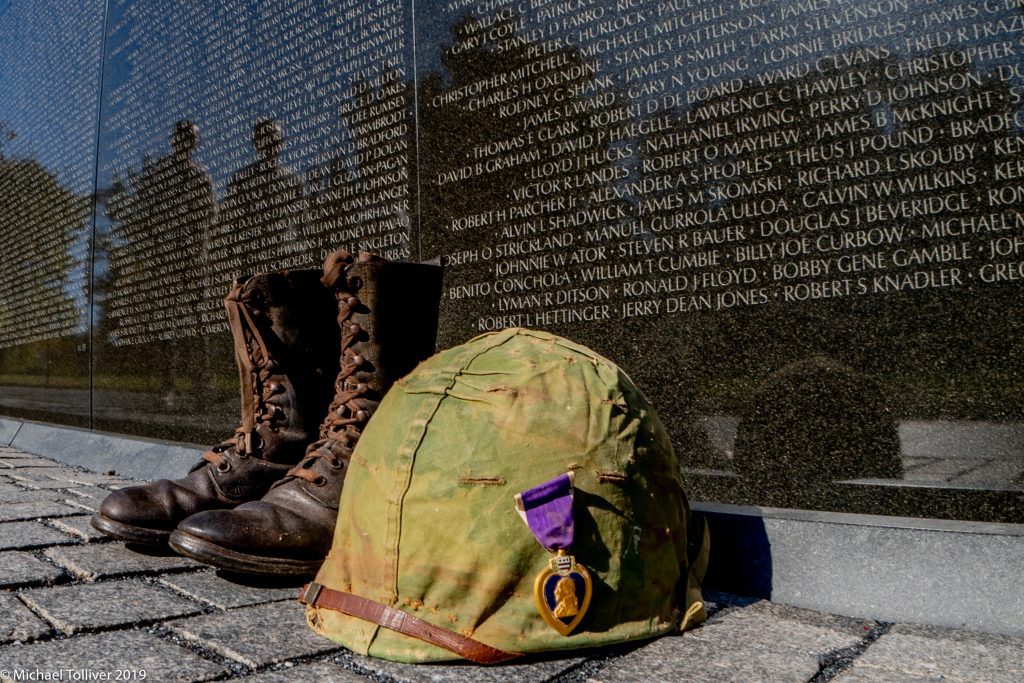Both the Department of Veterans Affairs (VA) and the Department of Aging has various programs and services designed to help seniors, including veterans. In this blog post, we’ll provide an overview of some options to help inform veterans and surviving spouses as they make important decisions about senior care. While there is no one-size-fits-all answer, we hope this information will help us understand the range of available choices of VA benefits.

VA Nursing Homes
VA nursing homes provide a wide range of services and care for veterans, from short-term rehabilitative care to long-term skilled nursing and medical care. They can be an excellent option for veterans who need assistance with daily activities or around-the-clock medical care.
One important thing to note is that not all VA nursing homes are the same. Some are smaller, more private facilities, while others are larger and may feel more like a hospital. It’s important to tour any potential homes and ask lots of questions to make sure it’s the right fit for your loved one.
Services offered by VA nursing homes vary, but often include:
- Skilled nursing care
- Physical therapy
- Occupational therapy
- Speech therapy
- Medical social work services
- Dietary counseling
- Spiritual care services
- Supplemental security income
- Veteran-specific programming, including peer support groups and recreational activities
The staff at VA nursing homes is highly trained and dedicated to helping veterans live as independently as possible. In addition to providing top-notch medical care, they can also offer emotional support for mental or physical incapacity and guidance during this difficult time.
Assisted Living
An assisted living facility is a type of senior care that offers assistance with daily living activities (ADLs), such as dressing, grooming, and bathing. It can also include help with medication management, meals, and transportation. These facilities offer various services and amenities, so it’s important to research and find one that meets your specific needs.
Veterans may find assisted living to be a good option for several reasons:
- It can provide a sense of community and socialization, which is important for older adults.
- It offers support and assistance with ADLs, which can be helpful for those who need some extra help but don’t require full-time nursing home care.
- The assisted living facility is often less expensive than nursing homes, making them a more affordable option.
If you’re considering assisted living as a senior care option for veterans, ask the facility about its policies regarding veteran benefits. Many assisted living facilities to accept VA benefits, which can help offset the costs associated with care.

Health Care
Health Care is a significant component of VA benefits and services for seniors. The VA offers a comprehensive health care system, which includes primary and specialty care, hospital care, mental health services, and help with a permanent disability. Eligible veterans may also receive coverage for dental and vision care and prescription drugs.
One important thing to note is that the VA health care system is not free. Veterans must meet specific eligibility requirements to be enrolled like active duty in military service, and they must pay copayments for some services. However, the cost of health care is often much lower than what private insurers charge, so it can be a cost-effective option for those who qualify.
One important thing to remember is that the VA has an income threshold for eligibility for its VA health care benefits. To qualify, veterans must have an annual income below $23,540 for a single person or $32,724 for a married couple. However, even if a veteran’s income exceeds these levels, they may still be able to receive some benefits, such as prescriptions or dental care.
The Department of Aging also offers various health care services specifically designed for seniors. These include the Medicare Savings Programs, which can help pay for Medicare premiums and out-of-pocket costs; the Medicare Part D Low-Income Subsidy Program, which helps pay for prescription drugs; and the Long-Term Care Insurance Program, which helps pay for nursing home or home health care costs. Veterans are eligible for these programs, regardless of their income level.
Ultimately, the best way to find out what options are available is to contact your local VA office or Department of Aging office and ask about specific programs. They will be able to help you determine whether you qualify for VA health care and assist you in applying for those benefits.
Assistance For Residential Care
Assisted living communities and community living centers can be an excellent option for veterans who need assistance with activities of daily living (ADLs). These facilities offer seniors around-the-clock care in a supportive environment, many of which are specifically designed to meet the needs of veterans.
One important thing to note is that not all residential care facilities are created equal. Some facilities may be more appropriate for veterans with specific needs, such as recovering from an injury or illness. It’s important to do your research before selecting a facility to ensure that it meets your specific needs and expectations.
The VA offers programs and services to help veterans find appropriate residential care facilities. The Veterans Health Administration (VHA) operates a national network of Community Living Centers (CLCs), which offer both long-term and short-term care options for veterans. The VA also provides funding to states to operate their Residential Care Facilities (RCFs), which offer long-term care options for veterans.
In addition to these government-funded programs, there are also several private residential care facilities that cater to veterans. These facilities typically have partnerships with the VA, which allows them to provide certain benefits and services to veterans. For example, many of these facilities offer access to on-site health clinics, which can be helpful for veterans who need ongoing medical care.
Residential care facilities can be an excellent option for veterans who need assistance with activities of daily living (ADLs), such as bathing, dressing, and eating. These facilities offer seniors around-the-clock care in a supportive environment, many of which are specifically designed to meet the needs of veterans.

Homemaker And Home Care Services
Homemaker and home care services are excellent for seniors, especially veterans. These services can provide much-needed help with activities of daily living, such as cooking, cleaning, and transportation. Veterans Affairs (VA) benefits can cover the cost of homemaker and home care services for eligible veterans. To be eligible, veterans must be either on active duty or retired from the military.
VA Pension
The VA pension is a popular senior care option for veterans. The pension is available to veterans at least 65 years old who have served in the military for at least 20 years. The pension provides a monthly payment to help cover the cost of senior care. To apply for the pension, veterans must apply to their local VA regional office. The application process can be lengthy, but it is worth the effort for many veterans. The VA pension can be a great way to help pay for the cost of senior care.
Final Thoughts
We hope this article has helped you better understand veterans’ different senior care options. If you are a veteran or know someone, please share this information with them and help connect them with the needed resources. Thank you for your service!
